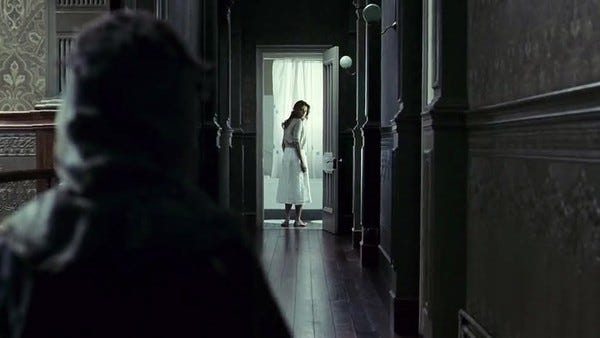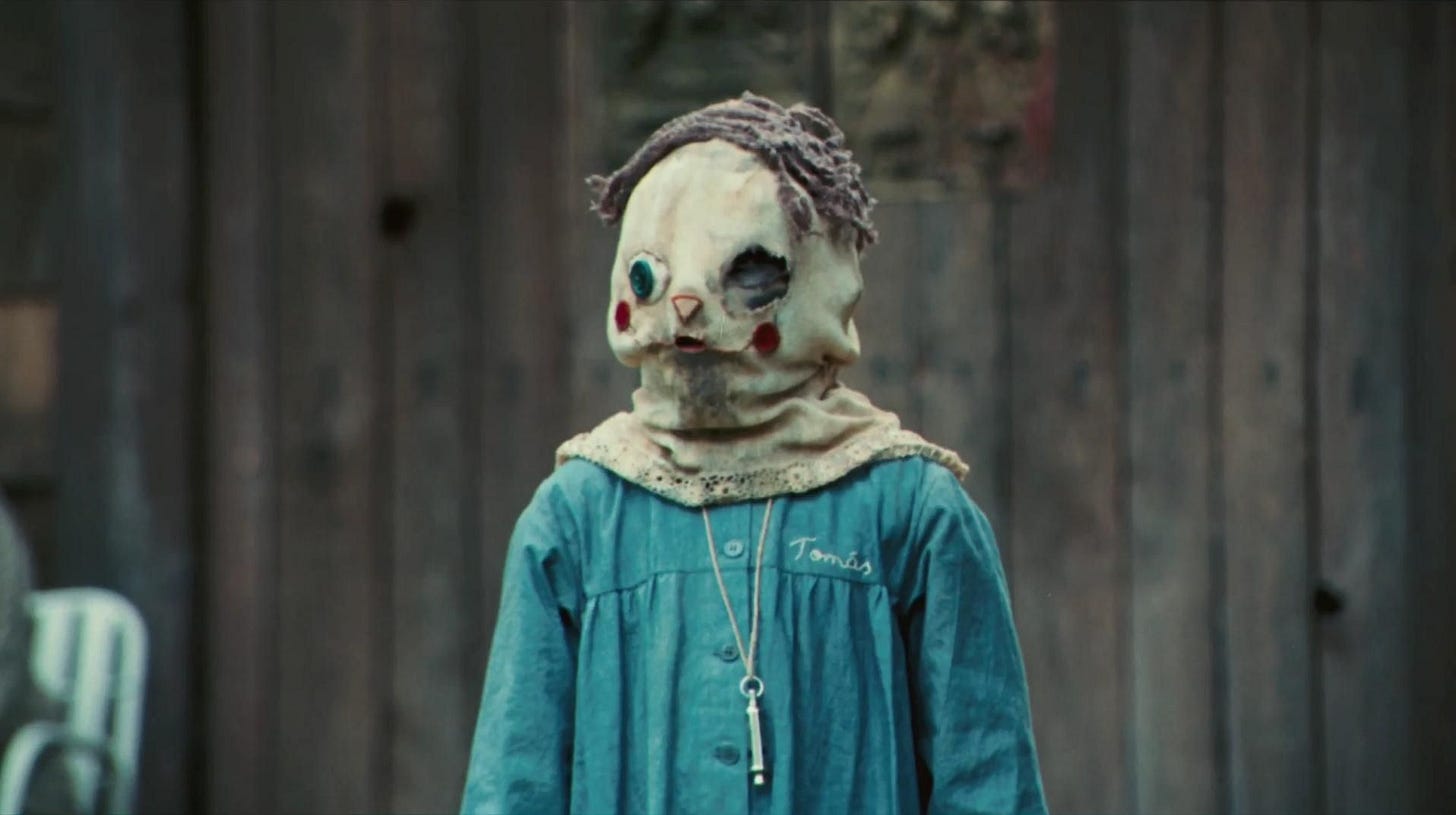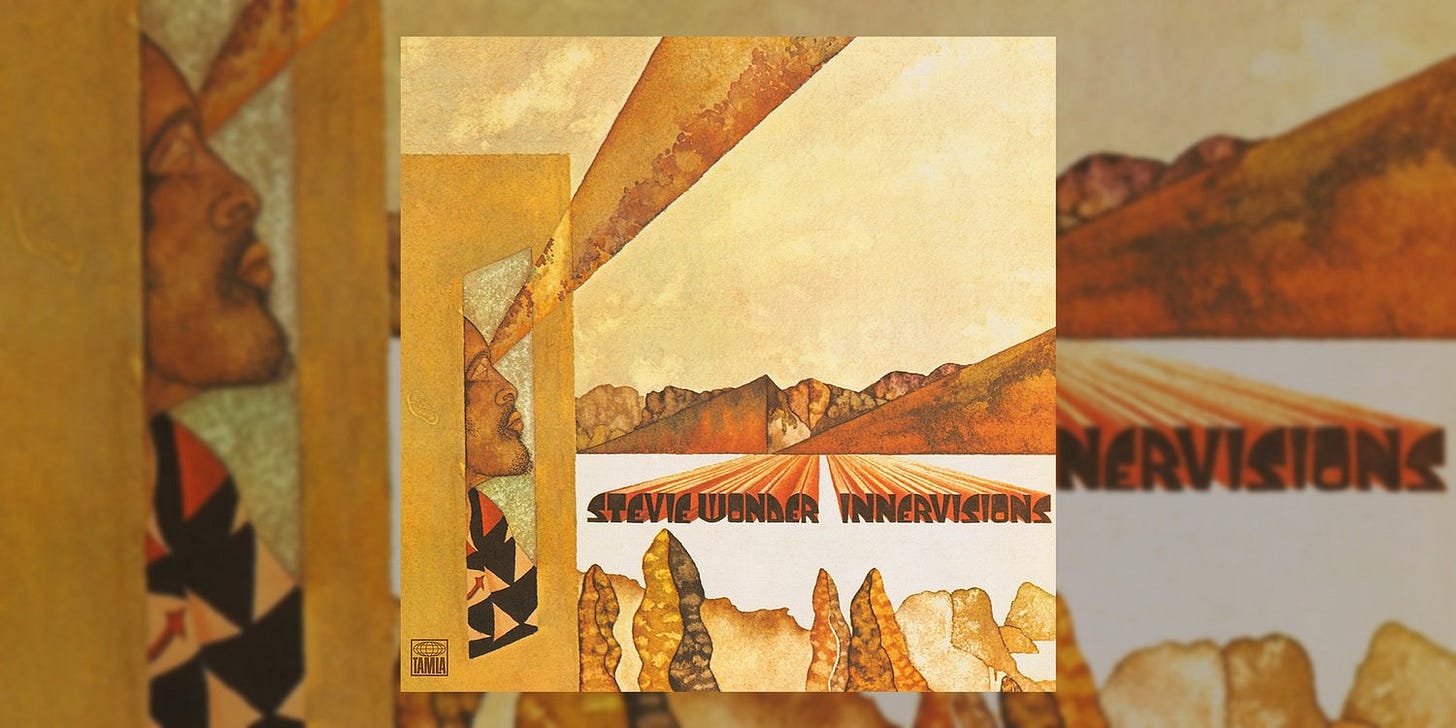Announcing the Clusterhucktober Spooktacular
Through October, I'll be writing about eight horror movies that helped me rethink horror. First up: The Orphanage
I didn’t grow up watching a lot of scary movies. This had to do with a mix between a conservative Christian upbringing that was skeptical of Halloween and the simple fact that I was a big scaredy cat. My parents didn’t really want me watching scary movies and that was fine by me.
I don’t really remember when things changed, but I’m very into good horror movies now. I say “good horror movies,” because many of them re bad and I think that holds a lot of people back from getting into the genre. If you grew up like I did and didn’t try to get into horror until later, you could be forgiven for thinking all horror movies are disposable, exploitive slop. A lot of them are, but some of them are the best movies you could ever watch. I wish I’d had somebody there to point me through all the forgettable schlock and towards the good stuff. I didn’t. But now you do.
Through the month of October, I’ll be writing about eight different horror movies that I love. These aren’t necessarily my all-time favorites, but I think they’re all good horror movies for people who don’t necessarily like horror movies or, at least, aren’t super experienced with horror movies. And hopefully, they’re movies made by filmmakers who understand and utilize fear towards substantive, meaningful ends.
The Orphanage (2007)
The Shining (1980)
Rosemary’s Baby (1968)
Signs (2002)
It Follows (2014)
Bram Stoker’s Dracula (1992)
Alien (1979)
The VVitch (2015)
Every haunted house movie is itself haunted by one inescapable question — the Achilles’ heel of the genre: “Why don’t you just LEAVE?” I’ve known people who moved apartments because they saw a spider and while I know it’s a tough housing market out there, I’d be crashing on a friend’s couch until something opened up if I saw blood dripping from the walls or portraits grinning at me.
Different haunted house movies find ways around this by either magically locking the doors or maybe burying some treasure in the basement that our heroes are too greedy to give up on. But The Orphanage stands out by giving its final girl Laura Rodríguez a real reason to stay, no matter how much she might want to leave. That reason ends up being the movie’s emotional core, and what makes this patiently unnerving piece of horror so emotionally affecting.
The Orphanage (El Orphanato) is a Spanish language horror movie made in cooperation between Spain and Mexico. It’s light on jump scares and heavy on moody atmospherics, prioritizing a mounting sense of dread and urgency as Laura is increasingly isolated from living human contact. The script was written by a Spanish filmmaker named Sergio G. Sánchez, who called it a cross between Peter Pan and The Turn of the Screw (I would never have come up with that comp on my own, but it tracks.) Sanchez had hoped to direct the movie himself, but no studio would give him the chance, so he offered it to the slightly more accomplished Juan Antonio Bayona. Even then, The Orphanage bounced around pre-production limbo until it caught the eye of one Guillermo del Toro, who fell in love with the story and offered to come on board as co-producer if it would help get this thing off the ground. It did.
The story follows Laura, her husband Carlos and their adopted son Simon, who purchase and move into the orphanage Laura herself grew up in. She’s hoping to spruce her childhood home up and turn it into a home for disabled kids. It all sounds so nice that Laura and Carlos are willing to overlook Simon’s growing friendship with a kid named Tomas, who does not seem to exist. But then Simon goes missing, and the old orphanage that Laura remembered so fondly takes a turn for the sinister.
Laura is played by Spanish television star Belén Rueda, and it is a staggering performance. Many women-led horror movies are anchored by these very demure, very mindful performances from women who all but surrender their agency to the ghosts, too plagued by indecision and fright to take action. Often, these performances are apt metaphors for how often women are robbed of agency in their own lives, and that can make for some effective commentary. But Rueda’s Laura is a force: fierce, clever and willing to brave any ghostly laughter or slamming door if it leads her to her missing son. Her maternal devotion grows into obsession, and as police, psychics and even her husband try to convince her it’s time to move on, Laura only grows more determined to uncover the secrets of the orphanage and what they have to do with Simon’s disappearance. Those secrets clearly involve several unalive children, including Tomas, who starts popping up in the orphanage’s spookiest corners, sporting one of the all-time great horror movie masks.
None of this works without a good orphanage, and the production team found a humdinger in Asturias, a 19th century colonial house with enough creaky doors, narrow hallways and gothic shadows to leave your nerves in tatters. The sound design team makes a real meal of the place, and Óscar Faura’s handsome cinematography keeps everything looking gorgeous even when it’s scary, adding gloomy, doomy vibes to the lovely seaside location where everything goes down. One scene — a midnight seance largely depicted in night vision — thunders with intensity, and Bayona’s crew bring all their gifts to bear on a masterfully harrowing few minutes you will be watching through your fingers.1
But Laura is the film’s anchor, a believably terrified woman who is always on the cusp of surrendering everyone else’s insistence than she’s losing it, but ultimately refusing to give up on Simon. The maternal bond is a regular fixture in horror (we’ll be seeing versions of it in most of this month’s movies) and, usually, the horror comes from seeing that bond subverted, inverted or twisted. But The Orphanage uses Laura’s love for Simon as its beating heart, something human and beautiful at the center of the macabre terror. Laura can leave her haunted house anytime. Everyone else does. But her stubbornness comes from love, which keeps us rooting for her right up until a very well-executed finale, where the love, horror and despair all swell into a stunner of a conclusion.
Applecore: Our Journey Through Apple Music’s Top 100 Albums of All Time
Liz and I are listening to Apple Music’s Top 100 Albums of All Time. One album a day-ish, counting down to number one. We did this with Rolling Stone Magazine’s top 500 Albums of All Time, and it took more than a year. This should only take a hundred days or so. I’ll be posting a few thoughts here as I listen. We’ll be dropping standout tracks from the listen on this Spotify playlist here.
Here’s parts one, two, three, four, five, six, seven, eight, nine, ten, eleven, twelve, thirteen, fourteen, fifteen, sixteen and seventeen.
44. Stevie Wonder — Innervisions
Stevie Wonder had been better. It was 1972, and he was both finalizing a messy divorce and opening for a band in full meltdown. The divorce was from Syreeta Wright, his longtime creative and romantic partner. The band he was opening for was the Rolling Stones, who were finally succumbing to the decadence that had been swirling around them for a decade.
Ultimately, the Stones would manage to pull things together, and Wonder and Wright would salvage a fruitful creative partnership from the embers of their marriage. But the events left Wonder shook. The quickening optimism of the 60s was long gone. The early 70s, with their Nixonian scandals, imploding military projects in Vietnam and soaring gas prices, had arrived. Wonder sang at the funeral of a ten-year-old Black boy who was shot out of nowhere by a New York cop while walking home with his dad. That did something to Stevie. He was being heralded as one of the greats of his generation, that came with a lot of responsibility, and Wonder felt it in his bones. Innervisions was how he chose to do justice to the fraught era he found himself in, the album where the famed romantic crooner refocused his unparalleled musical talent on the current events and spiritual questions that dominated his personal life.
Keep reading with a 7-day free trial
Subscribe to clusterhuck to keep reading this post and get 7 days of free access to the full post archives.






